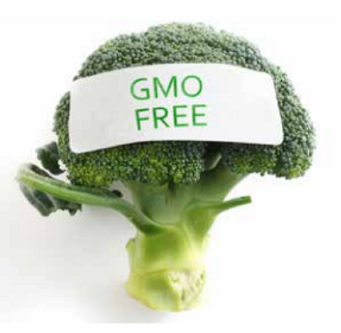We’ve said this already: 50 different methods for labeling U.S. food products just aren’t realistic from both a practical as well as a cost standpoint. Thus, it is not surprising that we continue to see activity in this space from Congress.
The latest round from Congress would pre-empt state efforts and put the responsibility on federal food agencies. The move is a result of the voice-vote passage of The Safe and Accurate Food Labeling Act of 2015 (H.R. 1599) by the House Agriculture Committee. This bill would stop state GMO-regulatory efforts and ban mandatory GMO labeling. FDA would also develop a non-GMO labeling standard, similar to that of USDA’s organic labeling.
The bill, which is a substitute amendment of the original bill, will go to the House (which is expected to pass it) and then to the Senate (where passage is less certain).
If approved by Congress and signed by President Obama, H.R. 1599 would:
- Pre-empt state-level efforts to enact mandatory GMO labeling laws, overturning the state GMO-labeling laws recently passed and prohibiting local regulation of GMO crops.
- Create a voluntary, consistent federal process of certifying and labeling food products as non-GMO, while prohibiting the mandating of labeling for all GMO foods.
- Allow the Secretary to require labeling of a GMO food if “(A) there is a material difference in the functional, nutritional, or compositional characteristics, allergenicity, or other attributes between the food so produced and its comparable food; and (B) the disclosure of such material difference is necessary to protect public health and safety or to prevent the label or labeling of the food so produced from being false or misleading in any particular.”
- Require that manufacturers have written FDA certification that a GMO product is safe.
While “right-to-know” activists are pushing GMO labeling, some on the other side are saying that this bill recognizes that right to know about a food’s origin and production is similar to the current labeling of organic foods. Rather than requiring that food manufacturers label their products as non-organic, the USDA National Organic Program allows approved products—and only NOP-approved products—to be labeled as organic. Similarly, as proposed in the bill, a standard to be developed by FDA would allow food manufacturers to label approved products—and only approved products—as GMO-free. Thus, like organic, those concerned with GMOs could purchase products fitting their needs.
This is an important difference, especially regarding the perceived safety of food products. Research conducted by the PEW Research Center reveals that although 88% of scientists from the American Association for the Advancement of Science say GMO foods are safe to consume, 57% of the general public believe these foods are unsafe. If more than half of your potential consumers mistakenly believe your product is unsafe, that would certainly have significant effect on your company’s business. Again, it is a similar argument as that of organic, where supporters often promote the food as healthier, despite USDA’s repeated assertion that “organic” simply means organic, not better or healthier.
In addition to the pro- and anti-labeling sides, the controversy has long been about who should have the authority. As we’ve said before, establishing state laws (i.e., those already passed by Vermont, Connecticut and Maine) would create a patchwork of rules, and food manufacturers would have to adapt to 50 different sets of laws.
Fundamentally, the consumers right to know what they are eating is not only understandable but, to me, totally appropriate. Where this goes off the rails is when it comes to complex labeling requirements and a push to require food companies to put information on labels that is nice to know but not critical to know. Regulations should be about protecting the consumer, and until (or unless) we have solid science indicating GMO foods are a problem that requires a warning, let’s keep mandatory labels where they belong and information for curious consumers in places where they can access it easily using modern technology.








Actually, there would be no need for 50 different labels but simply for the organizations to comply with the most stringent set of rules, which would more than meet the other state requirements. I haven’t looked at the current states requirements that have already passed, but most likely they are similar anyway. The federal government hasn’t really proven themselves to be competent, and as a consumer, I would prefer to know if an item is GMO. It makes no difference how many scientists say that GMO is safe. Many of the food scientists probably work for Monsanto and other such companies that push GMO and besides that we all know that scientists constantly change their minds about what is good or bad for you.
Another example of a relatively good idea gone way off the tracks. I too originally thought that Non-GMO food products were “better for you” that GMO products, until I looked further into it.
Folks with specific needs or wants should have this information added tot he packaging in the same way that Organic, Gluten Free etc. products are labeled.
As is often the case, there is usually a higher premium to be paid at the check out counter, but folks are charged what the market will bare.
For those products that want to be marketed as Non-GMO, Prove that it is, receive the FDA’s certification and leave the rest of us alone.